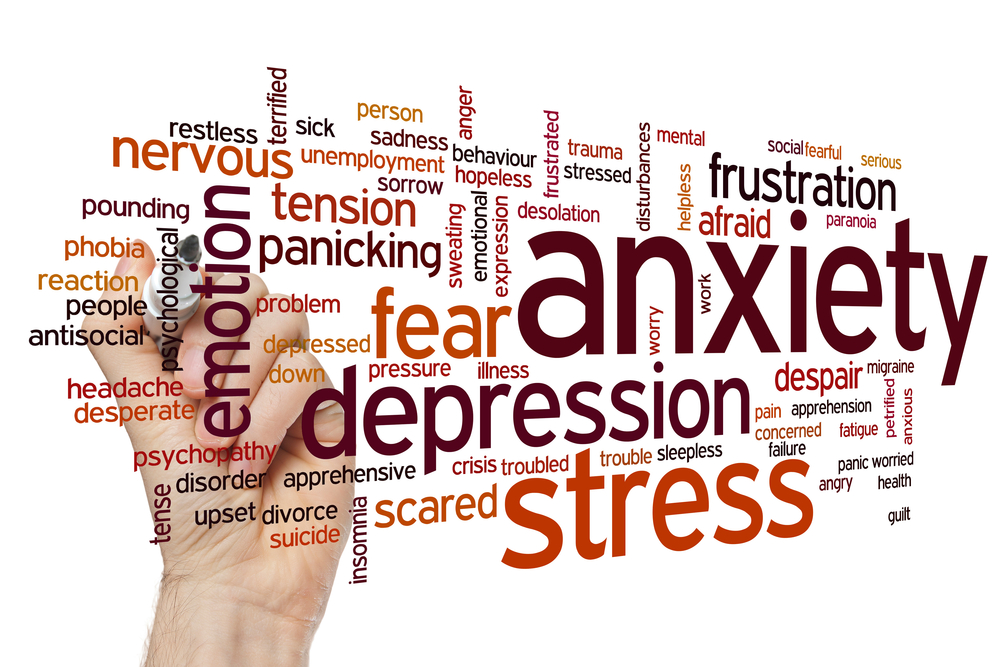Signs of an Anxiety Disorder

Occasional bouts of anxiety are common and affect everyone at some point in their life. This could be caused by life events, such as losing a job, shifting cities, exams, or more. Anxiety and stress become a problem when it becomes persistent and extreme.
It is important to know when anxiety has reached beyond normal levels and has developed into a serious problem. In this article, we will understand what is anxiety, its causes, and some signs to watch for.
What is Anxiety?
Anxiety refers to feelings of fear, worry, or stress due to any major life events or changes. While it can be a normal reaction to any change and sometimes help improve focus and energy, prolonged and extreme anxiety can become a serious problem.
According to the Diagnostic and Statistical Manual of Mental Disorders 5 (DSM-5), anxiety as a disorder occurs when a person experiences high levels of stress for a long period (usually for six months or more). It can lead to interruptions in the individual’s personal and professional life, affect relationships, cause high blood pressure, or prevent them from going to certain places.
Anxiety disorders can be classified into many different types, such as generalised anxiety disorders, phobia-related disorders (specific fears of things or situations), and social anxiety disorders.
What are the Causes of Anxiety?
Factors such as brain chemistry, genetics, and environment may put one at risk of developing anxiety. Additionally, physical conditions such as heart disease, thyroid issues, irritable bowel syndrome, and other mental health conditions such as depression, or other pre-existing mental health conditions can also make one worried about their health, contributing to anxiety.
What are the Signs of Anxiety?
Some common signs of anxiety include:
1. Fatigue
Anxiety is typically associated with arousal or hyperactivity. However, an often overlooked and common sign of anxiety is fatigue. Fatigue can manifest as feeling tired all the time, or only after an anxiety attack.
Moreover, fatigue can also be caused by other anxiety symptoms like insomnia or due to muscle tension, hormonal changes, and more.
2. Insomnia
Insomnia is strongly associated with anxiety disorders. People suffering from anxiety disorders are often known to have trouble falling asleep, or may find themselves waking up in the middle of night, leading to irregular sleep.
Studies published with PubMed Central also suggest that people with insomnia are more likely to develop mental health issues such as anxiety. As a result, in case one is dealing with insomnia, it is important to see a medical professional.
3. Panic attacks
Panic attacks are bouts of intense and extreme fear that have physical reactions such as nausea, sweating, shaking, trouble breathing, pain in the chest, and more. It can be either a symptom of anxiety or a disorder on its own. It can cause debilitating fear and worry.
4. Muscle tension
If one has tension in their muscles consistently, it may be a sign of anxiety. However, it is unclear if muscle tension causes anxiety, or anxiety causes muscle tension.
5. Avoiding social situations
Avoiding social situations is often a sign of social anxiety. If a person suffers from symptoms such as fearing upcoming social gatherings, fear of being judged by others, or avoiding social events because of self-consciousness, it can be a sign of social anxiety disorder.
6. Feeling restless
This is a very common sign of anxiety amongst children and adults alike. It usually refers to an urge to move around or be on edge.
7. Difficulty in focusing
People with anxiety often report having difficulty in focus and concentration. A study published with PubMed Central reveals that, of 175 adults who reported to have generalised anxiety disorder about 90% had difficulties in concentrating.
Working memory can cause problems when it comes to anxiety. Working memory refers to the functions of our brain that use, remember, and process information in our everyday lives.
8. Worrying excessively
A major symptom of anxiety is stress and worry. People suffering from anxiety have unreasonable, intrusive, and extreme levels of worry about everyday situations and events. If this extreme level of stress continues for six months or more, it could be diagnosed as an anxiety disorder.
Anxiety can be a debilitating problem, preventing one from being able to engage in daily tasks, and can come with both physical and mental symptoms. If you are experiencing signs of anxiety, consult your healthcare provider for tips for managing anxiety.
FAQs
- Do I have an anxiety disorder?
Anxiety can be a normal part of life, warning one about danger. However, if it becomes persistent and starts to interfere with daily tasks, it may be something more serious. Look out for anxiety symptoms and consult a medical professional for further steps.
- What are the best ways to reduce anxiety?
Anxiety symptoms can interfere with one’s daily tasks and relationships. Methods such as practising relaxation techniques and self-care for anxiety, exercise, and dietary changes can all help manage symptoms. However, it is best to consult a healthcare professional for tips for anxiety management.














